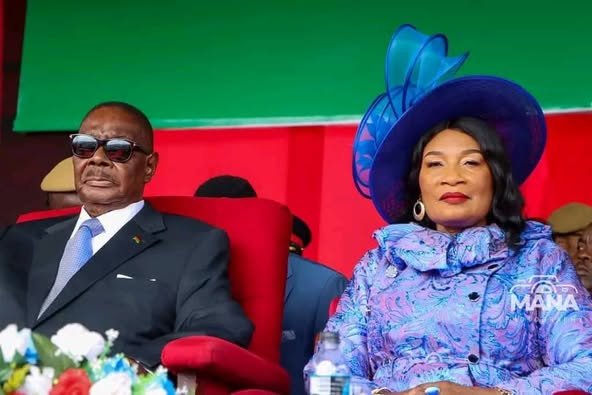Peter Mutharika has pledged to confront corruption and restore economic stability after being sworn in on Saturday for a second term as president of Malawi. The 85-year-old leader returns to power following a decisive victory that saw him secure more than 56 percent of the vote, defeating his long-time rival, outgoing president Lazarus Chakwera, who garnered 33 percent.
The September 16 election marked the fourth face-off between the two politicians, with voters this time round rejecting Chakwera after five years of worsening economic hardship in one of the world’s poorest nations.
Mutharika took the oath of office before a jubilant crowd at a stadium in Blantyre, Malawi’s commercial hub, packed with supporters clad in the Democratic Progressive Party’s blue and white colors. The ceremony was attended by senior government officials, diplomats, and several African heads of state.
In his inaugural address, Mutharika said his new administration was inheriting an economy in severe distress. He cited mounting cost-of-living pressures, crippling fuel shortages, and an acute scarcity of foreign exchange that has hampered businesses nationwide. “There is no money in government. Borrowing is extremely high, and nobody knows where the borrowed money has gone,” he declared.
Despite the grim picture, Mutharika assured citizens of his determination to restore economic order and public trust. “We will fix this country,” he vowed, warning that the days of unchecked mismanagement were over. “I don’t promise you milk and honey. I promise you hard work, tough and painful decisions. The honeymoon of looting government is over!”

Promises Of Jobs, Education, And Reform
The newly re-elected president has outlined an ambitious agenda to steer Malawi toward recovery. Among his core pledges is the creation of one million jobs for young people, a demographic deeply affected by unemployment and rising living costs. He has also promised to introduce free secondary education, easing the burden on struggling families and expanding opportunities for the next generation.
During his campaign, Mutharika emphasized stabilizing the national currency, the kwacha, which has faced sharp depreciation due to foreign-exchange shortages and inflationary pressures. He plans to stimulate economic growth by investing in infrastructure, expanding energy generation, and boosting agricultural productivity, key sectors he views as engines of long-term resilience.
Mutharika also committed to tackling corruption head-on, saying his administration would prioritize transparency in government contracts, improve efficiency across public institutions, and strengthen the rule of law. His plan includes decentralizing state finances, auditing natural-resource agreements, and tightening oversight mechanisms to ensure accountability in the use of public funds.
Appealing for global partnership, Mutharika directed a message to Washington, stating that he would soon dispatch a delegation to the United States to explore investment opportunities and discuss Malawi’s prospects with President Donald Trump following recent reductions in U.S. foreign aid.
Although outgoing president Lazarus Chakwera was absent from the inauguration, his Malawi Congress Party issued a conciliatory statement, wishing Mutharika “success and good health.” The gesture underscored a rare moment of unity in a nation eager for progress after years of economic stagnation and political tension.
Many Malawians, weary from broken promises and austerity, cast their votes on the hope that this second term will bring meaningful change. With promises of job creation, education reform, and tough anti-corruption measures, Mutharika’s leadership now faces its biggest test: translating bold rhetoric into lasting results for a nation in search of renewal.
READ ALSO: I’m Determined to End Galamsey – President Mahama Assures



















